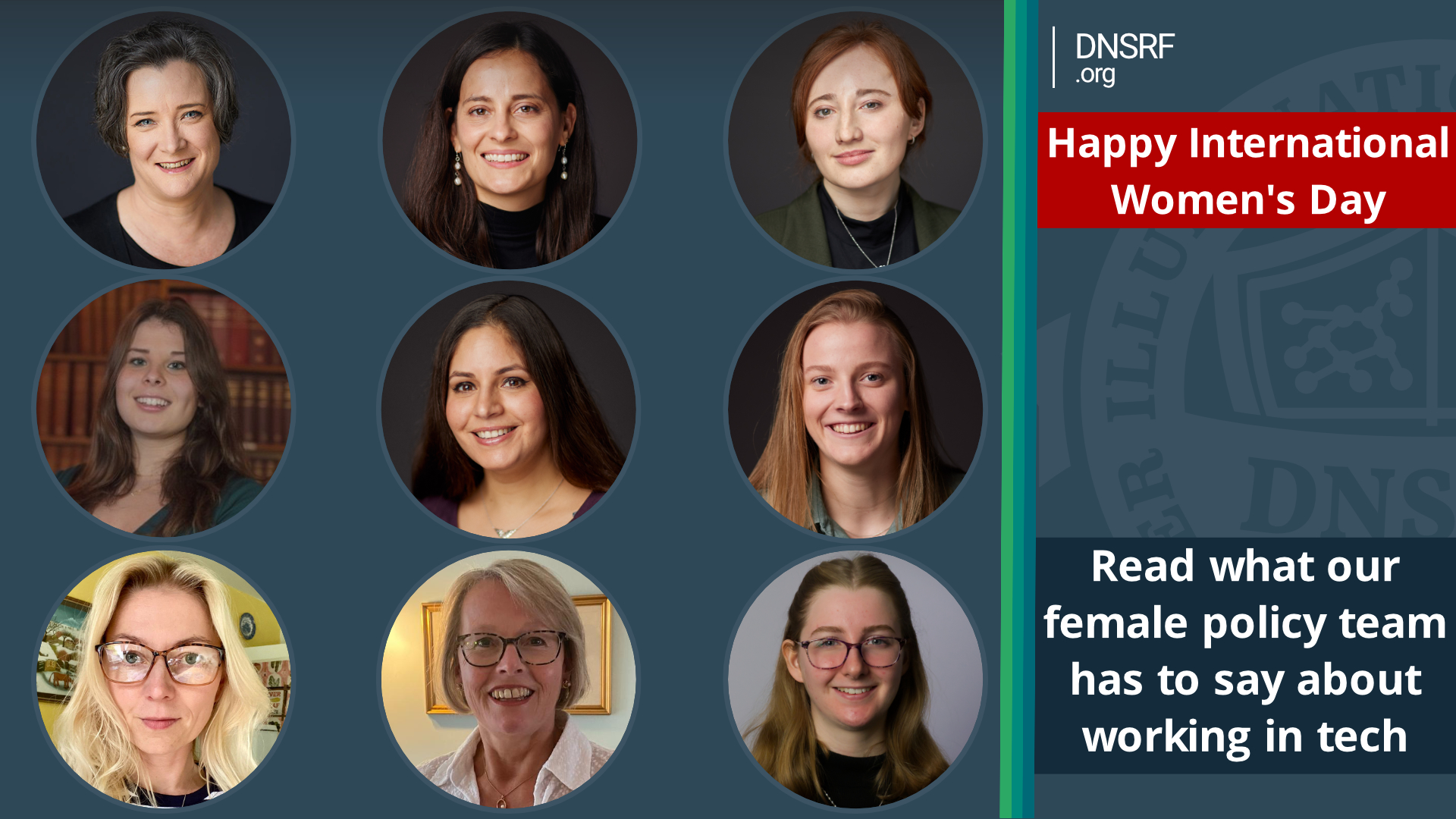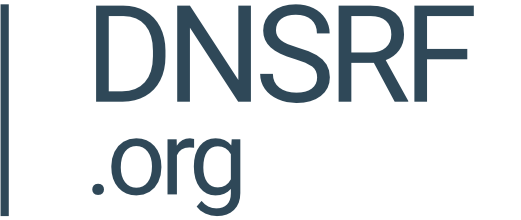DNSRF Policy Team: What it Means to be Women in Cyber

To commemorate this International Women's Day, we have compiled testimonials from the women who lead the DNSRF’s policy work. These explore what it means to be women in cyber policy, why gender inclusion matters and how it brings about positive transformation in the Internet industry. We hope these words resonate with colleagues across industry and inspire young female professionals starting off in cyber.
Emily Taylor, CEO and Founder

Women were among the early pioneers of computing and networking. 1930s screen siren Hediy Lamarr went on to invent a precursor to WiFi, after the movie roles dried up. The ‘computers’ of the ENIAC– celebrated in Kathy Kleiman’s documentary of the same name – and their British counterparts working in Bletchley during the second world war, contributed to breaking enemy cyphers, only to be written out of the history afterwards. It’s not clear when and why women lost their foothold in this emerging field, but by the late 1990s when I entered the world of technology, it was decidedly male dominated.
But in comparison to my original profession, the law, when I joined the tech environment in the late 1990s, I found it was more enabling of women, more prepared to consider flexible hours – essential to me as a mother of small children. And the Internet itself enabled home working, albeit through painfully slow dial-up.
While the experience of every woman is unique, support is not gendered. Throughout my career, I have had the support and encouragement of both women and men: mentors like Dr Patricia Lewis at Chatham House, colleagues like Mark Robertshaw, Joyce Hakmeh, Giovanni Seppia, Kieren McCarthy, and too many others to mention. Most of all my husband Lucien, my children and my parents, who have celebrated the triumphs and been there to pick me up during the disasters.
I am in awe of the courage and resilience shown by the generations of younger women who have followed. They are occupying their space in the workplace with confidence and without apology, taking the initiative and making their voices heard. But there are still challenges. I still see younger women subjected to unequal pay, patronising behaviour, and sexual harassment – battles our generation thought we had fought and won many years ago.
Today, I am proud to lead a brilliant team of women at the DNS Research Federation, and to work alongside an outstanding, all female editorial team at the Journal of Cyber Policy. As technology impacts all aspects of society, women need to be deeply involved in helping to shape policy for a better, more inclusive digital future.
Carolina Caeiro, Senior Internet Policy Specialist

My commitment for enhancing diversity in the Internet community began some years back when I had the opportunity to lead LACNIC’s Women in IT initiative. It continues today in my role as co-chair of the Internet Engineering Task Force’s Systers group that brings women and non-binary IETF participants together.
Every 8th March reminds me that change builds slowly: weaving networks of support with other women and gender-diverse individuals, leveraging the support of allies, and being resilient to persistent forms of inequality —like being mansplained, or enduring all-men panels, both of which I can say I have experienced at least once in the last three months.
I often get asked why this matters at all, especially in the field of cyber.
Diversity is essential to build an Internet for all. The reason is quite straightforward. When you are not represented —be it in designing technology, shaping policy and solutions— your needs and priorities are not always taken into consideration. In this way, diversity helps deliver better outcomes.
Diversity is also about talent and acknowledging that value can come from a wealth of sources. This holds especially true for male-dominated fields that I engage in, like Internet policy and technical standards.
While we all have different experiences, being a woman in cyber has not always been easy for me. My experience is permeated by the different layers of “who I am.” I am a woman; I am Latin American; I am a non-native English speaker. Speaking up feels daunting at times.
Mentors have been essential in my professional career. They have taught me and encouraged me on. I have also garnered courage from my conviction that the Internet industry needs more women from the Global South. And I have worked hard to deliver value through what I do.
As an Argentinean, I am a football fan. Growing up I never considered as a girl, I could play the sport. I see that changing now for my nieces which fills my heart. The sense they have one more opportunity I did not have. This 8th March, my hope is that my work in cyber policy also contributes to making this field increasingly welcoming for diverse voices and individuals.
Georgia Osborn, Senior Research Analyst and Research Community Manager

During President Obama’s administration - despite being the first sitting president to openly call himself a feminist - it was noticed that in meetings, female voices were often ignored. This is an experience many of us are all too familiar with. The female staffers adopted a meeting strategy called “amplification” to ensure their voices were heard and taken seriously.
“Amplification” is used when a woman makes a critical comment or point, and another woman repeats it while giving credit to the person who originally made it. This was then amplified by other women in the room and was finally successfully acknowledged.
Amplification is an example of some of the tactics women may use to ensure that their ideas and voices are taken seriously in male dominated environments.
I grew up in a family that is heavily female dominated - enriched with strong, talented, creative women whose voices are amplified by each other. The significance of being surrounded by a tribe of strong, exceptional women has been my core encouragement to pursue my goals.
My own career path towards being a “woman in technology” has not been a smooth one - but it has been encouraged and pushed forward by the women before me and the women around me.
My background in counterterrorism and law enforcement has shown me some of the difficulty that can come from being in an industry that is dominated by men where you may not have females in many leadership roles or women around you to amplify your key points.
International Women's Day is being celebrated to encourage women to step forward into a world that all too often needs other women to amplify their voices.
Being surrounded by men and women who encouraged me to continue to pursue my goals and ultimately my career, has brought me to an amazing network of people and work that truly fulfils me.
It is an amazing experience to now be in a position where I can also encourage women and girls to pursue their goals and careers in tech or security and amplify their success.
Dorottya Zsiboracs, Research and Policy Analyst

Transitioning from the male-heavy industry of national security to an also male-dominated realm of emerging technologies and AI has been a captivating journey for me. Throughout numerous defence and security work experiences and conferences, where being among the few females is the norm, I found empowerment rather than discouragement. Preparedness, resilience and engaging in meaningful conversations not only bolstered my confidence but also inspired me to persist in the field and actively encourage other next gen female colleagues to step into leadership roles and take agency in key decision-making processes.
My shift towards the dynamic intersection of emerging technologies and AI has been greatly facilitated by my studies at the Oxford Internet Institute, where my supervisor, a leading expert in cybersecurity, is also a female individual. Additionally, being a part of a full female policy team at the DNSRF has been nothing short of inspiring. Collaborating with a team of highly sophisticated and intelligent women who delve into deeply technical issues, safeguarding the core foundation of the Internet through the Domain Name System, has been a remarkable experience. Participating in projects where we effortlessly navigate and take part in discussions on intricate matters, such as blockchain, internet fragmentation, and technical standard monitoring, has been especially empowering. Therefore, the daily inspiration drawn from female leadership undoubtedly enhances my confidence in developing and communicating ideas, being efficient, kind, and maintaining professionalism simultaneously.


